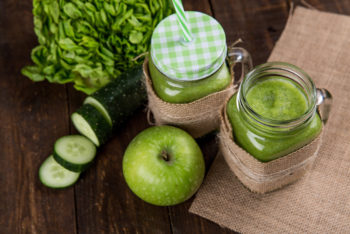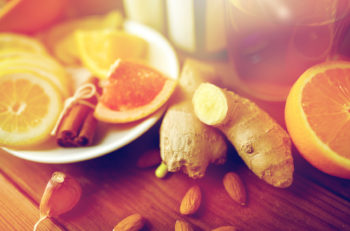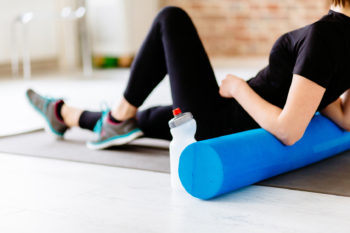A few simple changes to your diet could help you regain your va-va-voom!

Vits and minerals you need
IRON A common cause of unexplained tiredness is low iron stores in the blood, a condition that affects around 10% of South African women. Iron is needed for the manufacture of red blood cells, which transport oxygen around the body – without enough oxygen, cells are unable to produce energy. Women with heavy periods are at greatest risk of iron deficiency. Iron is more easily absorbed from meat and fish, but sufficient amounts can also be absorbed from dark leafy veg, grains, nuts and seeds.
Eat these Lean red meat, liver, chicken, mussels, sardines, spinach, quinoa, and pistachios.
VITAMIN B12 deficiency is another cause of fatigue. B12 is present in meat, fish and dairy products, so unless you follow a vegan diet, you should be getting enough. But, an autoimmune disorder known as pernicious anaemia can stop the body from absorbing B12 from food. People with an underactive thyroid or type 1 diabetes are more likely to develop this disorder. If you’re diagnosed with pernicious anaemia, you will need to be prescribed a high dose of B12 by a doctor.
THE B VITAMIN FOLATE is also needed for the manufacture of red blood cells, and deficiency can lead to an anaemia. Folate is a water-soluble vitamin that, unlike fat-soluble vitamins, must be used straight away as it cannot be stored in the body’s fatty tissue, and any excess is expelled through your urine. This means that just a few weeks of a poor diet that’s low in folate can result in a deficiency.
Eat these Lentils, chickpeas, kidney beans, broccoli, asparagus, spinach, avocados, Brussels sprouts, and brown rice.
MAGNESIUM is needed for certain chemical reactions that allow the body to convert energy from food. The recommended daily amount of magnesium for women is 320mg, but the WHO reports that South Africans are only getting about half of what they require.
Eat these Dark-green leafy veg, nuts and seeds, edamame beans, bananas, avocados, lentils and other pulses, and shellfish.
W&H TIP Vitamin B12 and folate deficiency, and the subsequent lack of energy, can sometimes be caused by an underlying health problem, such as coeliac disease. Women are more likely to be affected, but 50% may go undiagnosed as they may not experience any obvious symptoms. For more info, see ‘Celiac’ Disease South Africa on Facebook.
A meal rich in protein produces chemicals that will help you feel alert and energised

A question of balance
The nutritional balance of meals can also have an impact on your brain chemistry and energy levels. A meal that is rich in protein encourages the brain to produce chemicals that will help you feel alert and energised. Meals that are heavy in refined carbs and low in protein cause an imbalance in the neurotransmitters of the brain, which make you feel tired and foggy – so try to eat more protein at lunch time, and substitute refined carbs with those that are unrefined.
Another common cause of lethargy, particularly in the afternoon, is dehydration. A recent study carried out by the UK’s National Hydration Council revealed that dehydration was thought to be the cause of one in 10 cases of unexplained tiredness.
A shot of caffeine can be just the thing to give you an instant energy boost, but it’s important that you don’t rely on it, or abuse it. It’s also worth remembering that the stimulant effects of caffeine can last between five and six hours, and some people who are particularly sensitive can still feel the effects up to 10 hours later. So if you have problems sleeping, it’s important to avoid caffeine for at least six hours before retiring for the night.

Wake-up boosters
Set yourself up for all-day energy with these kick-starter moves
STRETCH YOUR BODY! Kick off your day with a super-energising yoga stretch. “Back bends are invigorating, stimulating the nerves along the spine and opening up our lungs,” says yoga trainer Bridget Woods Kramer. “The more oxygen that we get, the brighter and less tired we will feel!”
Bridget’s back bend Newbies can try this couch-based version – yes, really!
Sit along the couch, bottom and back against one arm, and your feet pressed against the other (if you’re tall enough, otherwise don’t worry).
Stretch your back over the arm of the couch.
Then try to stretch your arms to the floor (keeping your feet on the couch). Hold for five to 10 breaths.
Got a Pilates ball? You can do this over a large ball for even more stretch.
REV YOUR SHOWER Need a jump-start? Aromatherapy will do the biz! “A good blend to get things moving would be black pepper and rosemary,” says aromatherapy expert Ines Willis. “Black pepper improves circulation to give the body a nice wake-up call, while rosemary is stimulating and detoxing. Their herby smell wakes the mind and makes you feel more alert.”
It’s easy Add five to 10 drops of each essential oil to 50ml plain body wash. Find essential oils at soil.co.za
SET YOUR INTENTION Sounds a bit airy-fairy, but a US-based study by Carnegie Mellon University has shown that self-affirmations can help you perform better under energy-draining pressure. “An affirmation is a statement that enables positivity, motivation and inspiration,” says nutritionist Julie Montagu. “Say it out loud, in your mind, or write it down. I recommend you say it out loud as this has a bigger impact on the mind.”
It’s easy Begin by creating a short affirmation that suits you – something positive about your qualities or abilities. Sit quietly, breath deeply, and say it mindfully. Let it sink in, then say it over again a few times.
Pimp your porridge
“Millet makes the perfect porridge,” says Julie Montagu. “It contains essential nutrients, including copper, manganese and magnesium.”
200g millet, uncooked weight
225ml almond milk
25g pumpkin seeds
drizzle maple syrup & handful berries
1 In a large pot, bring 450ml water to the boil before adding the millet. Reduce heat to low and simmer for 15 minutes, stirring occasionally.
2 Add the almond milk and cook on low for five minutes while stirring. Remove from heat and stir in the pumpkin seeds. Serve with maple syrup and berries.
Find more recipes in Julie Montagu’s book Eat Real Food (Hay House).

